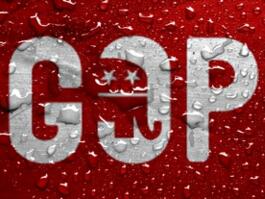Kasich Plays the Spoiler
A Commentary by Fran Coombs
Why is John Kasich still in the race for the Republican nomination?
His shutout in yesterday’s Wisconsin Primary shows there’s no groundswell of support for a non-angry, traditional Republican candidate in the race despite all the bad things he, the media and other prominent GOP officials have had to say about Donald Trump. There’s a perception that Ted Cruz is picking up some momentum, while Trump’s momentum is slowing. But Kasich? Forget it.
Exit polls in Wisconsin found that stop-Trump voters moved to the Texas senator, not the Ohio governor, with Kasich underperforming in several key demographics compared to his showing in the March 15 primaries.
The Kasich campaign, with predictable political spin, claims that Cruz’s win over Trump now shows that the GOP race is ”wide open.” With neither of the top two contenders likely to have enough delegates to claim the nomination on the first ballot, the Kasich team sees things as ripe for maneuvering their candidate into the nomination at the convention. Kasich himself says an open convention will be “fun” and “cool.”
The problem for Kasich is that GOP voters don’t want a brokered convention: 51% say the candidate who enters the convention with the most delegates should be the nominee. Just 34% think the delegates at the convention should choose the nominee by voting for whomever they want.
Unfortunately for him, too, Republicans don’t have a superdelegate set-up like Democrats do that would allow the party leadership to steer the nomination to its preferred candidate.
(Want a free daily email update? If it's in the news, it's in our polls). Rasmussen Reports updates are also available on Twitter or Facebook.
Even Karl Rove, the dean of Republican political operatives who lost his candidate when Jeb Bush flamed out, doesn't think nominating someone who can't win primaries is a good idea. Rove, however, is no fan of either Trump or Cruz, so he now suggests that perhaps the party needs “a fresh face” as a nominee. Translation: We’ll sacrifice our guy (Kasich) if you sacrifice your guys (Trump, Cruz).
The leading “fresh face” is House Speaker Paul Ryan. Some leading Republicans see a Ryan-like candidacy as the only thing preventing a down-ticket rout of other GOP candidates if Trump or Cruz is the nominee. But Ryan insists he’s not interested. Rasmussen Reports is testing Ryan’s strength vs. likely Democratic nominee Hillary Clinton right now and will report the results tomorrow morning.
Some in the Republican leadership may think there will be a return to “normalcy” once the insurgents are quieted. Republican National Committee Chairman Reince Priebus has begun suggesting that there will be consequences for unsuccessful GOP candidates who challenge the party nominee.
Trump and Cruz and the majority of their delegates are not likely to go quietly, however. These are voters who are very angry at the federal government and even angrier at the GOP-led Congress. They strongly believe that their Republican representatives in Washington, D.C. are out of touch with the voters in their own party.
Most Republicans also don’t care if the failed candidates support the nominee or not.
More worrisome for Priebus and company is Rasmussen Reports’ finding a month ago that 24% of GOP voters are Very Likely to support Trump if he runs as a third-party candidate. Can Trump attract disaffected Bernie Sanders voters, too, after Democratic leaders give Hillary Clinton the nomination with their superdelegates? After all, his message about American jobs and disastrous trade deals is already attracting so-called Reagan Democrats to the GOP primaries.
For the Republican Party, it really seems to boil down to whether Cruz can defeat Trump fairly and squarely. The media has made much of Cruz’s efforts to switch delegates elected to support Trump over to his side. Unless Cruz can turn enough of those votes into a first ballot victory, his efforts just appear to play more into the hands of the brokered convention crowd who hope to use subsequent ballots to their advantage.
Wisconsin also may just be a temporary defeat for Trump who rallied from his second-place Iowa Caucus showing to win a series of crushing primary and caucus wins in subsequent states. Coming up next are big delegate states like New York and Pennsylvania where Trump has commanding leads in the polls and where voters are more receptive to his “New York values” vs. Cruz’s evangelical conservatism.
Trump is perhaps the only one who can defeat Trump, as Peggy Noonan astutely pointed out last week in the Wall Street Journal. Can he overcome his recent gaffe-plagued campaigning and return to the issues that boosted his candidacy at the start? After all, GOP voters still like the sound of that temporary Muslim ban, and in an increasingly security conscious time, his hardline on Islamic terrorism is sure to continue resonating.
In short, Trump is down but far from out: His political future is largely in his own hands. Cruz continues to run a very smart campaign, moving closer to Trump’s positions in several areas in hopes of picking up some of his voters. Their contest is far from over. But party voters who want to pick the nominee rather than have him picked for them should be asking themselves, why is John Kasich still in the race.
Fran Coombs is the managing editor of Rasmussen Reports.
See Other Political Commentaries .
See Other Commentaries by Fran Coombs .
Views expressed in this column are those of the author, not those of Rasmussen Reports. Comments about this content should be directed to the author at [email protected].
Rasmussen Reports is a media company specializing in the collection, publication and distribution of public opinion information.
We conduct public opinion polls on a variety of topics to inform our audience on events in the news and other topics of interest. To ensure editorial control and independence, we pay for the polls ourselves and generate revenue through the sale of subscriptions, sponsorships, and advertising. Nightly polling on politics, business and lifestyle topics provides the content to update the Rasmussen Reports web site many times each day. If it's in the news, it's in our polls. Additionally, the data drives a daily update newsletter and various media outlets across the country.
Some information, including the Rasmussen Reports daily Presidential Tracking Poll and commentaries are available for free to the general public. Subscriptions are available for $4.95 a month or 34.95 a year that provide subscribers with exclusive access to more than 20 stories per week on upcoming elections, consumer confidence, and issues that affect us all. For those who are really into the numbers, Platinum Members can review demographic crosstabs and a full history of our data.
To learn more about our methodology, click here.





